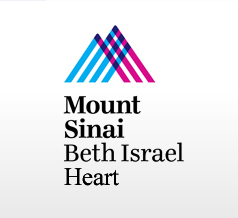The Impact of Group Singing on Patients With Stroke and Their Personal Caregivers
| Status: | Recruiting |
|---|---|
| Conditions: | Neurology |
| Therapuetic Areas: | Neurology |
| Healthy: | No |
| Age Range: | 18 - Any |
| Updated: | 5/18/2018 |
| Start Date: | April 2014 |
| End Date: | June 2021 |
| Contact: | Joanne Loewy, DA |
| Email: | jloewy@chpnet.org |
| Phone: | 212-420-3484 |
The study will focus on the impact of communal singing on patients with stroke and their
personal caregivers. Forty post-stroke patients will be randomly assigned to two groups: the
first group of 20 stroke survivors and their caregivers (up to 40 total participants) will
receive 6 months (approximately 24 sessions) of music therapy. The second control groups of
20 stroke survivors and their caregivers will receive standard post-stroke care
personal caregivers. Forty post-stroke patients will be randomly assigned to two groups: the
first group of 20 stroke survivors and their caregivers (up to 40 total participants) will
receive 6 months (approximately 24 sessions) of music therapy. The second control groups of
20 stroke survivors and their caregivers will receive standard post-stroke care
The study will focus on the impact of communal singing on patients with stroke and their
personal caregivers. Forty post-stroke patients will be randomly assigned to two groups: the
first group of 20 stroke survivors and their caregivers (up to 40 total participants) will
receive 6 months (approximately 24 sessions) of music therapy. The second control groups of
20 stroke survivors and their caregivers will receive standard post-stroke care.
All enrolled participants will be assessed on their mood, past music experience and music
genre preference (music therapy assessment). They will complete the abridged Beck
(BDI-2-fastscreen) questionnaire, the stoke and aphasia quality of life scale; a Likert which
measures distress; the Western Aphasia Battery (WAB); the NIH Stroke Scale (SS); the Figely
compassion scale; and the driving scene test (Stern and White); and the Rankin. In additional
we will take saliva samples from all participants to measure hormone levels.
personal caregivers. Forty post-stroke patients will be randomly assigned to two groups: the
first group of 20 stroke survivors and their caregivers (up to 40 total participants) will
receive 6 months (approximately 24 sessions) of music therapy. The second control groups of
20 stroke survivors and their caregivers will receive standard post-stroke care.
All enrolled participants will be assessed on their mood, past music experience and music
genre preference (music therapy assessment). They will complete the abridged Beck
(BDI-2-fastscreen) questionnaire, the stoke and aphasia quality of life scale; a Likert which
measures distress; the Western Aphasia Battery (WAB); the NIH Stroke Scale (SS); the Figely
compassion scale; and the driving scene test (Stern and White); and the Rankin. In additional
we will take saliva samples from all participants to measure hormone levels.
Inclusion Criteria:
- stroke victim, regardless of level of stroke
Exclusion Criteria:
We found this trial at
1
site
305 1st Avenue # Dazian 7
New York, New York 10003
New York, New York 10003
(212) 420-2806

Principal Investigator: Joanne Loewy, DA
Phone: 212-420-2704
Beth Israel Med Ctr The physicians and staff of Mount Sinai Beth Israel's Heart Institute...
Click here to add this to my saved trials